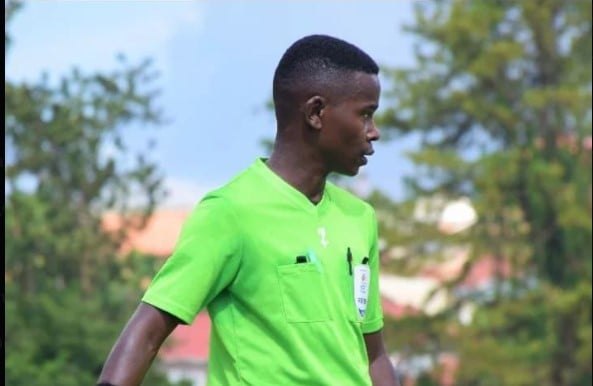Prime
Uganda wants to meddle in Kenyan politics? Here’s a manual (Part 1)

Author, Charles Onyango Obbo. PHOTO/FILE
What you need to know:
- There is a saying that Kenya is “ungovernable”. It is true. Power has become so dispersed that not even the president is a monolithic source of authority.
- In Uganda, it is either Museveni or one or two family members, especially Gen. Salim Saleh. In Kenya, there are many tracks.
Just over two weeks ago, President Yoweri Museveni and his long rule came in for a serious attack in Kenya. It followed the Kenyan government’s action of blocking its Deputy President William Ruto’s trip to Uganda. Ruto, seen as a friend of Museveni, and who has in the past appeared at his election rallies, has been going through a slow but acrimonious political divorce with his boss, President Uhuru Kenyatta.
In the political divide in Kenya, Museveni was portrayed as meddling, and plotting to help him seize power. Social media warriors and a section of MPs denounced Museveni. They painted frightening pictures (not all of them totally wrong) of a Uganda ruled by a violent president-for-life who never allows free elections, suppresses media freedom, and shuts down the internet. They said if Ruto wasn’t resisted, he would import similar “hell” to Kenya.
I am doubtful that Museveni is in cahoots with Ruto to the extent the Kenyan critics of the deputy president allege. Secondly, if Ruto is in play, he can’t be Kampala’s only card. Kenya is too strategically important for Uganda’s economy for even the most clueless of its political actors to adopt an all-eggs-in-one-basket tactic.
And yet, Museveni – and historically every government in Kampala – has to have a Kenya plan because it’s economically important to us (a sea route, and once as the main source of our imports, and lately as the leading destination of our exports).
In December 2007, in the vote that resulted in the worst post-election violence in Kenya’s history, Uganda was caught out. False accusations that it was transporting soldiers to opposition strongholds to help quell anti-government violence, led to Ugandan trucks transporting goods along the Northern Corridor being attacked, and torched, with a few drivers reported killed.
In Nairobi, the large expatriate Ugandan community then cowered. We didn’t carry any Ugandan identifiers (no t-shirts or caps with UG), and people’s kids get caught up in international schools outside Nairobi and they made desperate and dangerous scrambles to rescue them. There are real-life consequences when Uganda plays a wrong hand in Kenya.
In January 2008 as the violence raged, a delegation arrived in Nairobi from Kampala. It was not led by a big shot minister, but Robert Kabushenga, who was then head of the Media Centre. Bob called and asked if I could meet them at their hotel. I went. Bob’s first question was; “what are we missing in this Kenyan thing? What don’t we know?”
And we dived into it. It was one of those times when the right question is everything. And it was a recognition that you couldn’t look at the Kenyan crisis through a Ugandan prism. If Uganda is going to come out of the next year and Kenya’s unpredictable 2022 election on a sound strategic footing with Nairobi, it will be wise to ask the right questions. While perhaps few countries are as alike as Kenya and Uganda, especially when it comes to corruption, where power play is involved, they are as different as day and night. How?
Consider for example that Uhuru and Ruto have been sniping at each other for three years. Can you imagine a prime minister or vice president going to a rally or TV and disagreeing openly with Museveni not just once, but several times, over three years? For crying out loud, Amama Mbabazi, who was NRM secretary-general and Prime Minister was nearly lynched in 2014 for the sin of “harbouring ambitions” to succeed Museveni and signalling his intentions in his body language. The man didn’t even say a word. If Mbabazi had been a PM in Uhuru’s government, he would still be in his job.
So why the difference? There is a saying that Kenya is “ungovernable”. It is true. Power has become so dispersed that not even the president is a monolithic source of authority.
In Uganda, it is either Museveni or one or two family members, especially Gen. Salim Saleh. In Kenya, there are many tracks.
In the next two weeks, we shall look at these varying dynamics between Uganda and Kenya where, for example, local political overlords can be so powerful that they can all but prevent a president from campaigning in their area. Just imagine a situation in Uganda where, for example, a politician in Kanungu makes it impossible for Museveni to visit and campaign freely. Inconceivable.
In the next two weeks, we shall look at these varying dynamics between Uganda and Kenya where, for example, local political overlords can be so powerful that they can all but prevent a president from campaigning in their area. Just imagine a situation in Uganda where, for example, a politician in Kanungu makes it impossible for Museveni to visit and campaign freely. Inconceivable.
Mr Onyango-Obbo is a journalist, writer and curator of the “Wall of Great Africans”
Twitter: @cobbo3





